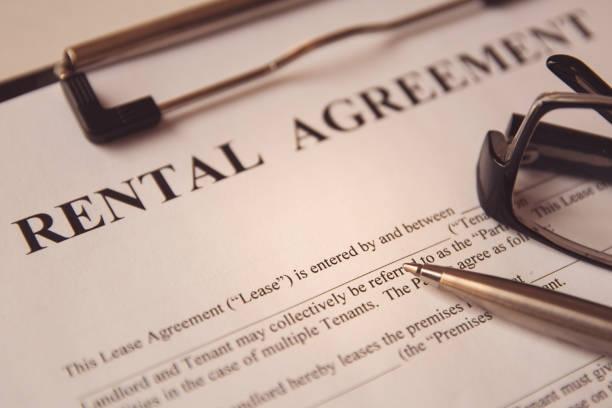It is estimated that there are over four million properties that are rented in the UK – that’s nearly 25%! When it comes to letting out a residential property, there are lots of factors that you need to take into consideration as a landlord. Many different responsibilities, challenges, and regulations come with renting out your property, and it can be a minefield if you are not careful!
If this is your first time then it can be a daunting task, but our guide offers new landlords all the advice you could ever need to help you with your new property to rent, as well as some tips and tricks that you might not have thought of! Whether you are considering moving into property investment and letting full-time, or you are an accidental landlord who has no idea where to start – we are here to help

Why should you rent your property?
There are many different reasons why people choose to rent out their property. The main reason is for financial gain, but it could be a short-term objective while they are living somewhere else and don’t want to sell their property just yet. The rental income will usually cover the mortgage on the property and give a little bit of income on top unless you are mortgage-free. It is important that you get to know your market and find out how much similar properties in your area are being let for so you can set your rent accordingly.
Check your Mortgage
If you are considering renting out your property for the first time when you need to speak with your existing mortgage lender. If the length of the property rental is less than 12 months then your lender may need to give you permission or consent to let out your property using your existing mortgage terms. In some instances, you may incur a fee, or your lender may make an adjustment to your current interest rate. If you are considering renting out your property for longer, then you will have to transfer your mortgage to a buy-to-let mortgage instead.
What work needs to be done?
Before you put your property on the market, you need to look at it as though you were seeing it for the first time. At the minimum, there are rooms that are likely to need to be decluttered and brightened up with a fresh coat of paint. However, in order to achieve a higher rent rate, other work may be required. Before any potential tenants come to view the property, you should ensure that the following work has been completed:
- Cleaning – a professional cleaning of the property both inside and outside.
- Exterior – ensure that the exterior of the property looks in good order, that the garden is clear and any garages are accessible.
- Appliances should all be in good working order with manuals available for tenants to view easily.
- There are enough keys/fobs for the tenants
- Phone lines and TV aerials should be working
- Post (either your own or your previous tenants) to be re-directed.
Working out your tax
If you are planning to rent out your property, then you must inform HM Revenue and Customs and you may be liable to pay tax via a self-assessment tax return each year. Renting out a property could also impact how much Capital Gains Tax you have to pay when you choose to sell, so it is important to work out how much tact you might be eligible for as this may determine whether renting the property makes sound financial sense.

Regulations and safety tests
It is a legal requirement to let out a safe house, and the only way that you can ensure this is to have the right checks completed and provide evidence of these checks to the tenants.
Some of these tests include an annual boiler services and gas safety test, a fixed wiring electrical safety test, a portable appliance test, and annual services to be completed for any oil or solid fuel appliances. You must also fit smoke alarms on every floor of your property and ensure there is a working carbon monoxide alarm anywhere there is a solid fuel appliance or working open fire.
The following legal obligations must also be fulfilled before you let out the property:
Electrical safety standard – it is the landlord’s responsibility to have the electrics inspected and tested every five years by a qualified person, and if anything needs to be fixed you have 28 days to complete the works. A copy of the Electrical Installation Condition Report (EICR) must also be given to the tenant.
Energy Performance Certificate (EPC) – It is a requirement that all residential properties must have an energy performance rating of E or higher, and if it is any lower you will not be able to rent out your property.
Gas Safety Regulations 1998 – A Gas Safe registered engineer must check the gas appliances in the property annually, and a Gas Safety Certificate (GSC) must be provided.
Flood and Water Management Act 2010 (Section 45) – Once the tenancy has ended, you must give the current water company the relevant tenant’s contact details. If you do not pass these on, both you (the landlord) and the tenant will become liable for any unpaid water charges.
How to Rent Guide – a copy of this government publication must be provided to the tenant at the start of their tenancy.
Smoke alarms and Carbon Monoxide alarms – all rented properties are required to have smoke detectors and carbon monoxide alarms fitted, and tenants should have access to external or internal escape routes if a fire occurs.

Speak with a Letting Agent
If this all sounds like a lot of hassle, then you are not alone. Unless you are from the industry, then letting out your own property can be stressful as well as confusing – but don’t worry, we are here to help! By choosing to put your property to rent on our books, we can take care of everything for you from collecting rent and dealing with tenant disputes, all the way through to ensuring you are compliant and up to date with the current regulations. Some of the services that we offer include:
- Finding and referencing tenants
- Advertising and marketing the property
- Hosting viewings
- Creating inventories
- Collecting rent
- Registering and keeping tenant deposits
- Dealing with maintenance
- Dealing with tenant disputes and evictions
We offer varying levels of service depending on how much you want to be involved in the running of your home. You could use us to simply advertise and fill your property, or you could take advantage of your guaranteed rent scheme guide that will ensure you are paid on time, every month – even when your property is empty. By working with us at Denhan, you can have peace of mind and security safe in the knowledge that you are letting the professionals deal with everything. All you need to do is enjoy the perks of being a landlord!
If you are thinking of working with a letting agent to rent out your property, or you want some more information on our guaranteed rent in London, then get in touch with our friendly team today. We are here to make your life as a landlord that little bit easier.